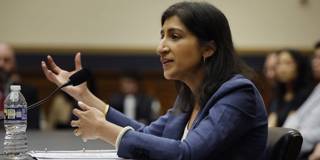Cracks in the New Gilded Age
Since 2020, the combined wealth of the world’s five richest people has more than doubled, to $869 billion, while nearly five billion people have become poorer, pushing inequality to unprecedented levels and posing a growing threat to democracy. But, as workers, regulators, and organizers are showing, the fight against oligarchy can be won.

WASHINGTON, DC – The past 12 years have been extremely good for the ultra-rich. The fortunes of billionaires – a group comprising the 2,640 wealthiest people on the planet, most of whom are men – has more than doubled. The wealth gap between the top 0.01% and the bottom half of the world’s population has increased by 50% since the 2008 global financial crisis.